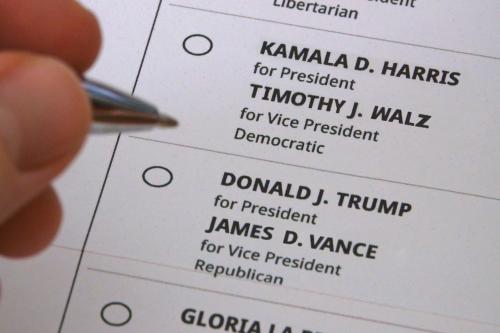

2:00 pm EDT - 3:00 pm EDT
Past Event
As the United States continues to respond to the COVID-19 pandemic, it is clear that reopening the economy will be a phased process dependent upon transmission rates. Social distancing, reduced economic activity, and disruptions in our everyday lives are likely to continue for some time, with profound implications on societal, community, and individual well-being. The disproportionately harmful effects on people of color are already well documented.
As Americans strive to return to work, there are major issues to address regarding health and health care access; disruptions in child care and K-12 education; and income and support for displaced workers, those unable to work due to health conditions, and undocumented and informal workers. Meanwhile, many business owners are struggling both operationally and financially, and are unsure if they can keep their doors open. As these dynamics continue, lawmakers and leaders in the private and social sectors will need to continue to evaluate the role of government and develop creative and equitable policy solutions for the country’s new normal.
On June 12, the Governance Studies and Metropolitan Policy programs at Brookings cohosted a webinar to discuss equitable solutions for workers and their families as the American economy begins to reopen. Speakers explored how challenges across multiple areas of life, work, and economic activity combine to create a unique moment that requires careful thought and wide-ranging, equity-focused solutions.
Viewers can submit questions for speakers by emailing [email protected] or via Twitter at @BrookingsGov by using #COVIDReopening.
Moderator

Panelist

Andre M. Perry, Hannah Stephens, Manann Donoghoe, Anthony Fiano, Farah Khan
November 7, 2024

October 24, 2024

Andre M. Perry, Hannah Stephens, Farah Khan
October 21, 2024